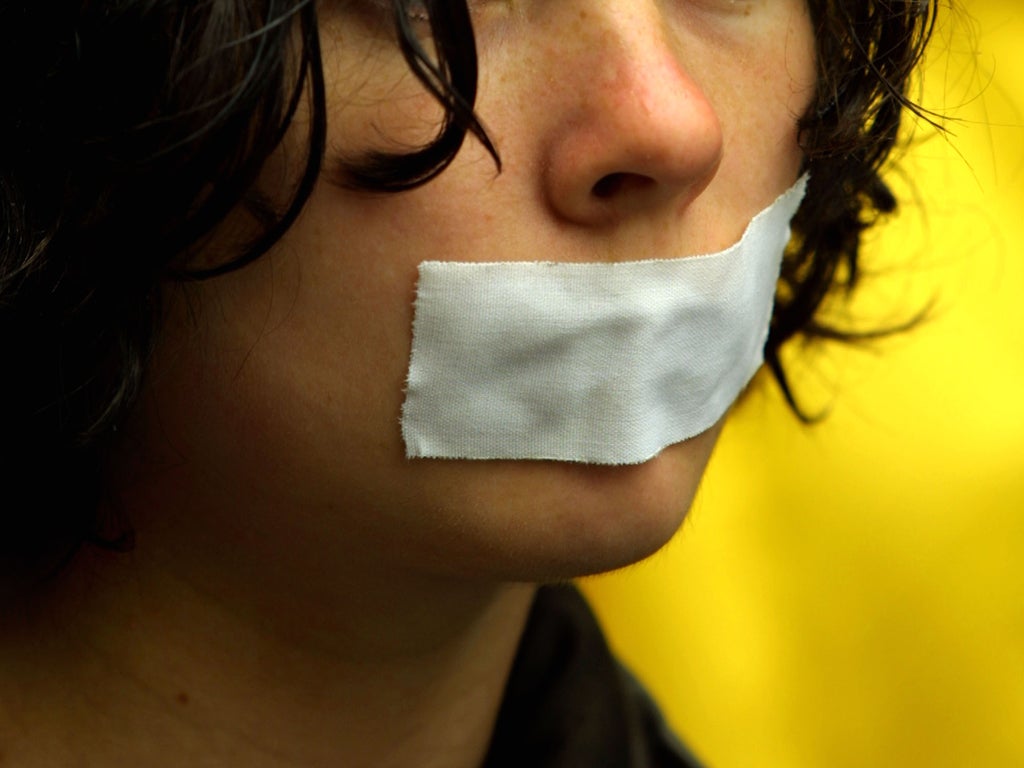The government must be stopped from silencing people with mental illness
While there are some shining examples of good practice within the mental healthcare system, there is still a huge amount of work to be done.

Your support helps us to tell the story
From reproductive rights to climate change to Big Tech, The Independent is on the ground when the story is developing. Whether it's investigating the financials of Elon Musk's pro-Trump PAC or producing our latest documentary, 'The A Word', which shines a light on the American women fighting for reproductive rights, we know how important it is to parse out the facts from the messaging.
At such a critical moment in US history, we need reporters on the ground. Your donation allows us to keep sending journalists to speak to both sides of the story.
The Independent is trusted by Americans across the entire political spectrum. And unlike many other quality news outlets, we choose not to lock Americans out of our reporting and analysis with paywalls. We believe quality journalism should be available to everyone, paid for by those who can afford it.
Your support makes all the difference.John is a 29 year-old chemistry student.
He enjoys spending time with his family, especially his two young nephews, and plans to work in a laboratory when he graduates. He also has a form of schizophrenia called schizoaffective disorder. When he was 18, John was hospitalised because of his illness and spent time in a mental health ward.
This should have been a chance for him to recover from an acute episode of mental illness in a calm, supportive environment. Instead, he endured experiences that left him feeling as though he was being punished.
Being forcibly injected with medication was particularly traumatic. He said:
“The nurses weren’t properly trained – they didn’t know how to restrain someone without physically hurting them. I was pinned down, face to the floor, my hands held behind my back. It dredged up memories of a childhood trauma when I’d been treated in the same way, which made the situation even more terrifying for me.”
Sadly, John’s experience of inpatient care was not an isolated incident. The Schizophrenia Commission, which has been hearing evidence from both professionals and people with lived experience of schizophrenia for the last year, has heard many similar accounts.
During their public evidence sessions, few described positive experiences of inpatient wards and there were countless horror stories of people being treated without respect, in poorly funded and scruffy environments, by staff under pressure.
While there are some shining examples of good practice within the system, there is clearly a huge amount of work to be done. Against this backdrop, you might expect the government would be keen to know more about people’s experiences. You might think they’d like to know which wards are getting it right and which are getting it catastrophically wrong.
"Two years ago, the Care Quality Commission (CQC), quietly scrapped the only systematic survey that checks how safe people feel on mental health wards"
They have in fact, done the complete opposite. Two years ago, the Care Quality Commission (CQC), quietly scrapped the only systematic survey that checks how safe people feel on mental health wards.
Since then, my charity, Rethink Mental Illness has repeatedly challenged the CQC and ministers on the issue, without success.
Perhaps it’s unsurprising that the government isn’t keen to keep the survey going when you consider the last one, in 2009, revealed that less than half of patients said they felt safe all of the time.
This is a national scandal. People getting treatment on physical health wards are still being asked their views. The safety and dignity of people getting mental health treatment should be just as important as safety and dignity on cancer wards.
If the government is hoping to ignore this issue until it goes away, they have a long wait on their hands. In the last week alone, almost 5000 people have signed a petition, demanding Jeremy Hunt reinstates the survey and the numbers are growing daily.
It’s just not good enough that people’s views and experiences are being swept under the carpet in this way. If the results are inconvenient and embarrassing for the government, perhaps they should consider tackling the problem, rather than silencing the critics.
Rachel Whitehead works in communications for the charity, Rethink Mental Illness (www.rethink.org)
Join our commenting forum
Join thought-provoking conversations, follow other Independent readers and see their replies
Comments